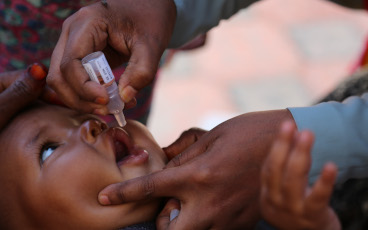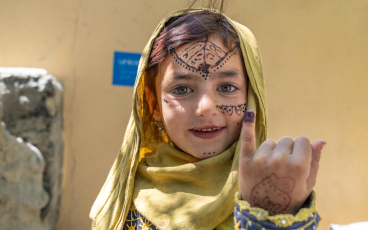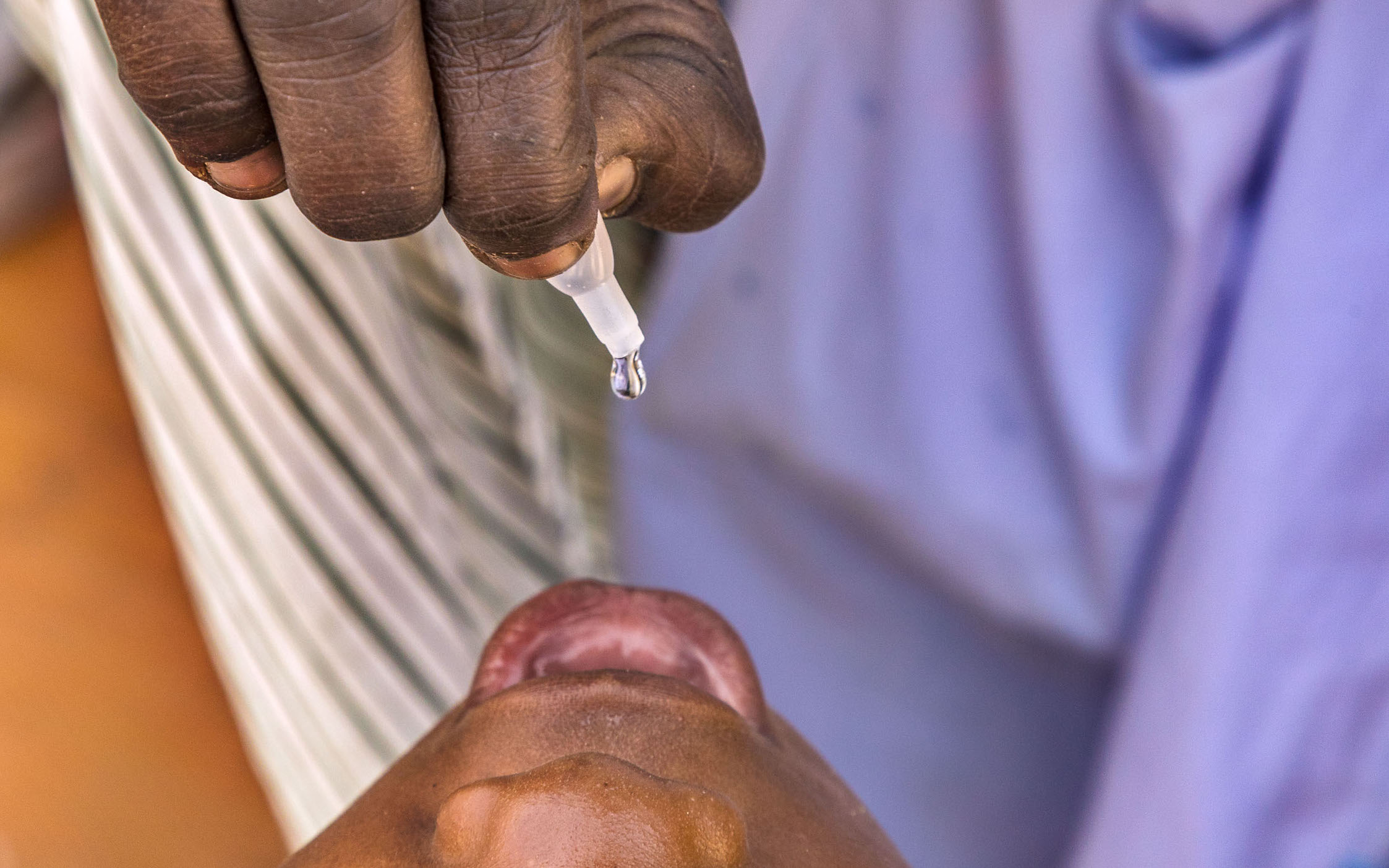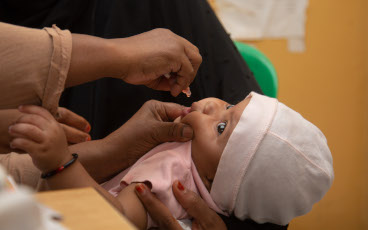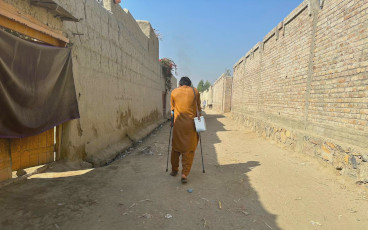A targeted outbreak response: reaching out to Somalia’s high-risk populations
In the Horn of Africa polio outbreak, immunization efforts are focusing on a group known as “special populations”.
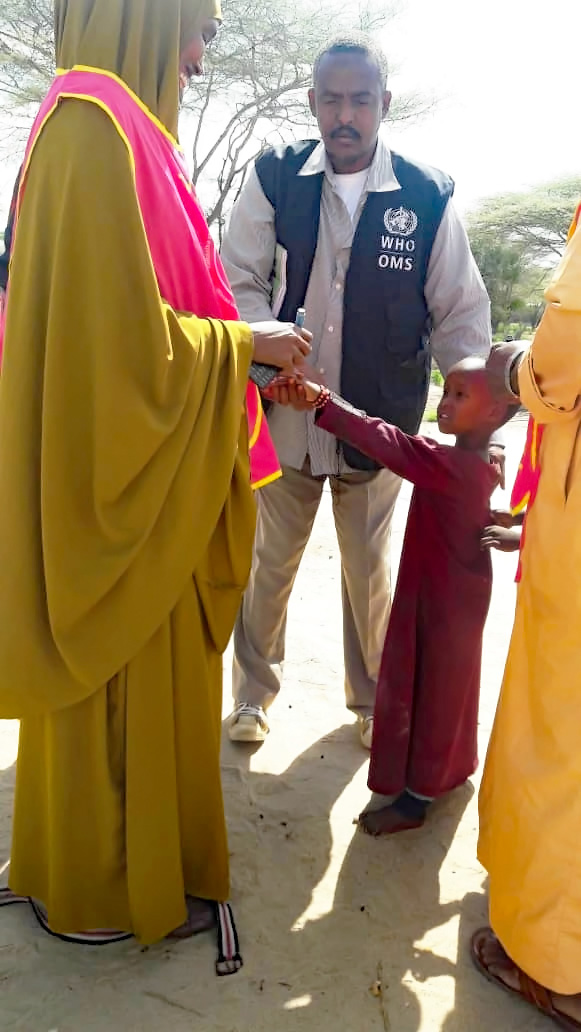
Since polio was confirmed in Somalia in late 2017, health authorities have led a complex response to twin outbreaks of circulating vaccine-derived poliovirus type 2 and type 3 (cVDPV2 and cVDPV3), paying special attention to high-risk populations: nomads, internally displaced people (IDPs), and people living in peri-urban slums and rural areas.
So far, five of Somalia’s 12 infected children are from nomadic communities, and another four are from internally displaced families living in urban areas. To boost immunization among eligible children in these populations, vaccination activities have placed a special focus on reaching these communities.
Somalia has a rich culture of people leading pastoral lifestyles, raising livestock and moving with them as the seasons and the weather change. Nomadism has a long history in Somalia and nomads have a special place in Somali society: almost a third of Somalia’s people are nomads. However, they do not observe formal international borders – just like the poliovirus. For health workers, this context poses a significant challenge: How can you be sure you have vaccinated every last child when so many children are on the move?
For health workers, this means searching for polio symptoms in more than 900 health facilities across the country, as well as nutritional centres, camps for IDPs, and key sites along Somalia’s borders. At transit points, along borders and at water collection points, polio teams work to vaccinate children moving in and out of areas experiencing conflict or with limited access to health services. In high-risk areas, the Somali Government, WHO and UNICEF hire local vaccinators – people known and trusted by their communities – and when additional security is necessary, polio partners provide it.
Gaining high-level political goodwill
Even in an emergency, cross-border collaboration is not always easy to come by. In the Horn of Africa outbreak, regional collaboration moved into high gear in September, when health ministers from across the region and representatives from the Intergovernmental Authority on Development (IGAD) countries came together in the Kenyan town of Garissa to reiterate their commitment to ending polio.
One of the event’s key messages was around the risks posed by the easy and frequent mobility of communities across borders. Kenya’s national polio immunization ambassador, former UN Person of the Year and polio survivor, Harold Kipchumba, spoke directly to the pastoral communities in the region.
Kipchumba highlighted their focus on vaccinating animals, and urged parents in these communities to use the same vigour to vaccinate their children against polio, so they are able to serve as future herders for their families.
A regional response to support high-risk populations
The Technical Advisory Group, an independent body of experts that monitors outbreaks and offers guidance, recommended that countries in the region strengthen their coordination. In response, the Horn of Africa Coordination Unit coordinates joint responses among HoA countries – work that includes monitoring current outbreaks, and collaboratively planning, mapping, conducting immunization campaigns and communicating with various audiences. This ensures that countries work together in partnership rather than in silos, viewing the outbreak as one epidemiological block.
At regional and district levels, teams have spent the last few months building records of every settlement in their area, by lifestyle (nomad, IDP, peri-urban slums, rural). The highest priority: locating special populations – internally displaced persons, refugees, nomadic families, people living in informal settlements in urban areas and communities living in access-compromised areas – in order to reach them with vital polio vaccine.
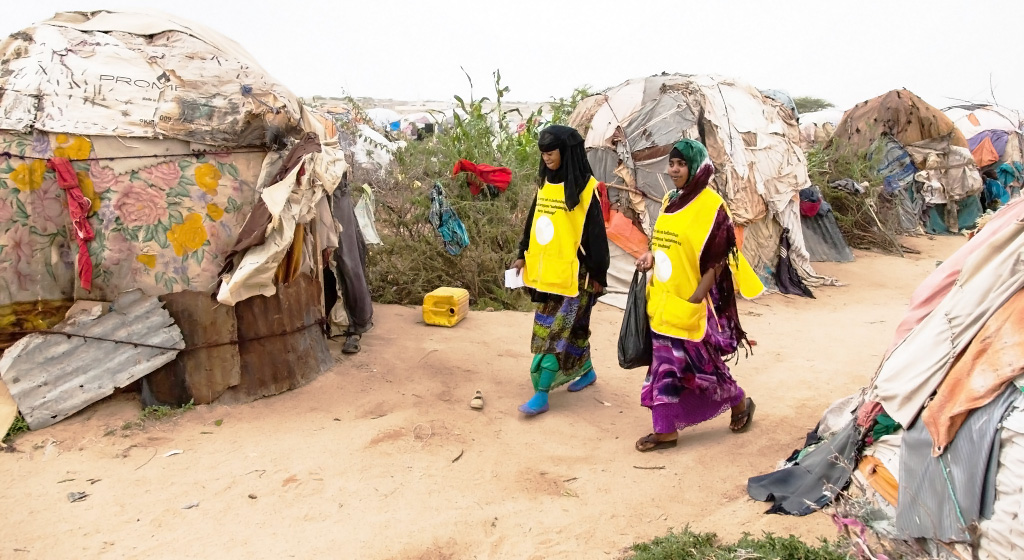
Using technology to reach more children
A vital step in reaching more children, particularly those on the move, has been to move away from paper records and use electronic tools to collect data on children reached and missed during campaigns. This gives data specialists and decision-makers timely, accurate information, allowing them to analyze data in real time and flag areas with where high numbers of children are missed, so teams can revisit these households the following day.
Getting vaccines to the doorstep is not the only challenge for polio eradication teams in Somalia. Parents and caregivers also need information to ensure their children are vaccinated – something Kipchumba spoke to. On rare occasions, vaccinators meet families unconvinced of the need for vaccinations, particularly when the family has a newborn child or a sick child. In the lead up to every campaign, teams of social mobilizers, sometimes joined by influential Islamic leaders or scholars, visit communities to alert them of dates of polio immunization campaigns and the benefits of vaccination. Here, too, special attention is paid to nomadic communities, as polio teams liaise with elders from these communities in order to learn more about these communities and their needs, and to inform community members in appropriate ways about immunization dates and benefits of vaccination.



